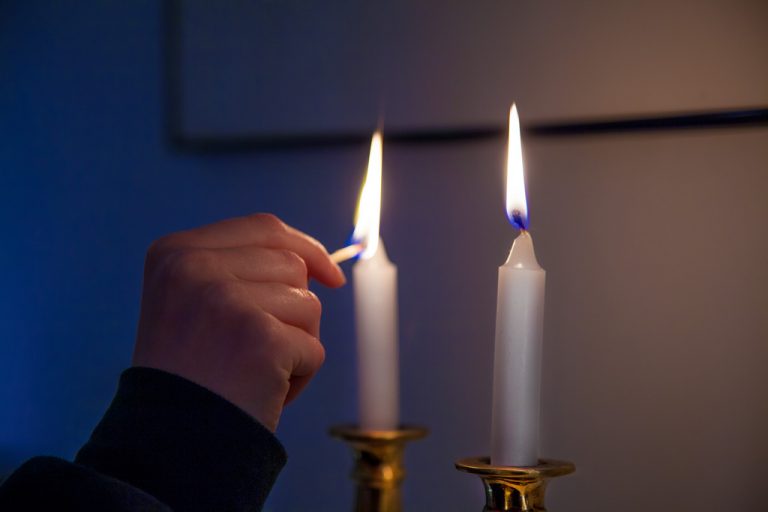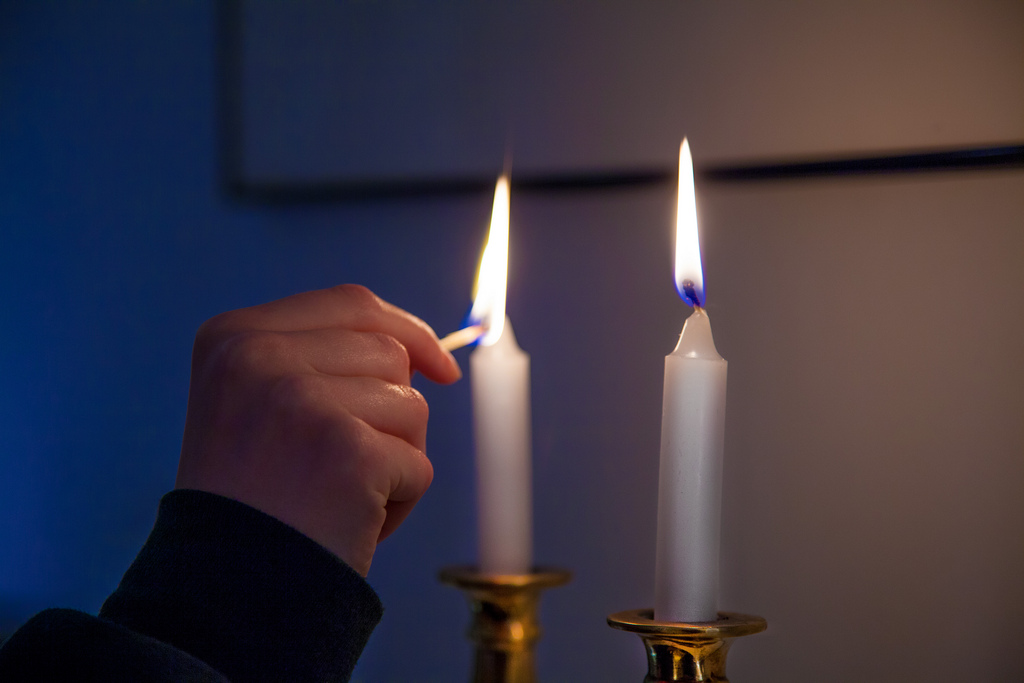 The “Aseret HaDibrot,” the “Ten Commandments,” are documented twice in the Five Books of Moses, once in Shemot (20, 2-17) and once in Devarim (5, 6-18), when Moshe is reviewing the Jewish experience in the Desert. In general, the two texts are nearly identical. However, with respect to the Commandment relating to Shabbat, there are crucial differences, as follows:
The “Aseret HaDibrot,” the “Ten Commandments,” are documented twice in the Five Books of Moses, once in Shemot (20, 2-17) and once in Devarim (5, 6-18), when Moshe is reviewing the Jewish experience in the Desert. In general, the two texts are nearly identical. However, with respect to the Commandment relating to Shabbat, there are crucial differences, as follows:
“Remember the day of Shabbat, to keep it holy. Pursue all your labor for six days, and do all your “Melacha” (the term “Melacha” to be defined in Item 3, below). But the seventh day is Shabbat to the L-rd your G-d; On it you may do no “Melacha,” neither you, nor your son, nor your daughter, nor your male servant, nor your female servant, nor your cattle, nor the stranger who is within your gates. For in six days G-d made the heavens and the earth, the sea and everything that is within it; And he rested on the seventh day; Therefore, G-d did bless the day of Shabbat and He made it holy.” (Shemot 19: 8-11; the Shabbat Command as recorded in the Shemot version of the Ten Commandments)
“Guard the Day of Shabbat to keep it holy, as the L-rd your G-d has commanded. Pursue all your labor for six days, and do all your “Melacha.” But the seventh day is Shabbat for the L-rd your G-d; Do no “Melacha” – not you, nor your son or daughter, nor your male or female servant, nor your ox or donkey or any of your cattle, nor the stranger who resides within your gates, in order that your male and female servants shall rest, as you rest. And you shall remember that you were a slave in the Land of Egypt, and the L-rd your G-d took you out from there with a strong hand and an outstretched arm; Therefore, did the L-rd your G-d command you to observe the Day of Shabbat.” (Devarim 5: 12-15; the Shabbat Command as recorded in the Devarim version of the Ten Commandments.
Of course, it is extremely unusual, at first glance, that there should be any variation here. But the Midrash explains that, somehow, G-d uttered both versions at once, something that a creature of flesh and blood could not do, to teach both of the themes of Shabbat, namely, the Creation and the Exodus. Another aspect of the dual utterance of “Remember the Day of Shabbat” and “Guard the Day of Shabbat” is that Shabbat has a dual nature – positive and negative, affirmation and withdrawal, as discussed below:
The special quality of the Day of Shabbat is based on the concept of the holiness of time. The Shabbat is that one day out of seven that was charged with holiness, by the holy Creator of time.
Shabbat has a double theme, the significance of each of which is developed in the paragraphs below. One is to commemorate the Creation of the universe by G-d in six “days,” and his “rest” from his “Melacha”, and that it was for that reason that He blessed the seventh day and made it holy – Shemot version. The other is to commemorate the Exodus, that awesome event in which the L-rd took the Jewish People out of Egypt; that we should remember that we ourselves were slaves in Egypt, and that G-d Himself redeemed us with a “strong hand and an outstretched arm.”
On Shabbat, the Jew withdraws from the performance of “Melacha.” All categories of “Melacha” represent purposeful, creative interactions with nature. In the case of Man, this refers to his interaction with his environment, whereby he exerts mastery and control over nature, as in fact he was commanded to do by G-d. Our purpose in this is to express our belief and to testify that G-d is the Creator of the Universe, and is the source, on an ongoing basis, of all creative forces within it.
Shabbat testifies to the dignity of labor and the basic equality of all human beings. The Torah commands “Six days shall you labor;” – all of you! No exceptions! Yet, all members of the household, all classes of society, from the king to the servant; even the animals, are to be provided with a “Day of Rest.”
One of the central themes of Shabbat, as seen in the Devarim version of the “Aseret HaDibrot,” the Ten Commandments, is to remember the Exodus. This unique event in history demonstrated the continuing involvement of G-d with His Creation, His fierce opposition to slavery and all abuse of power, and His concern for justice.
Throughout the centuries and millennia of Jewish History, oppressors of the Jews realized that a major key to Jewish survival was observance of the Shabbat; therefore, it was outlawed; sometimes punishable by death. Conversely, the Shabbat raised the Jews far above their enemies; for the Jews , in acting to carry out G-d’s command, were acting in accord with their human potential, while their enemies, in attempting to suppress this observance and in their desire to strip the Jews of their human dignity, descended to the level of the beasts.
The Shabbat Table is compared with the Altar in the Temple. Shabbat is the Day of “Quality Time,” the Day of Delight, of “Menuchah” or Tranquility, to be spent with one’s family, with one’s self, with one’s Maker, and with the Torah.

